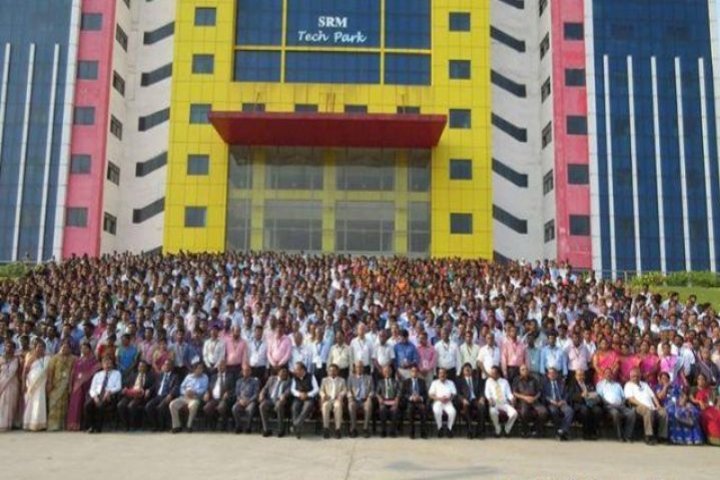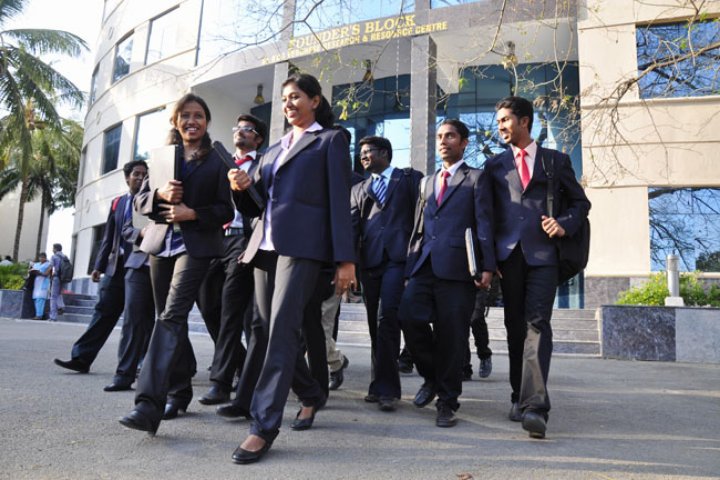
Cloud Computing Course Details - Fees, Subjects, Syllabus, Duration, Eligibility, Career Scope
Degrees offered: B.E /B.Tech, B.C.A., B.Sc.(Hons), Diploma, M.C.A.
What is Cloud Computing
Cloud computing is a course of one-year duration. The course provides information on various computing services. It is a branch of computer science that covers management, storage and processing of data on networks of the internet server. The course offers in-depth knowledge of cloud architecture, security, and deployment models, alongside practical skills in managing cloud services and platforms.
To be eligible, candidates need a bachelor's degree in computer science or related fields. Major entrance exams include GATE, JEE, and specific university tests. Graduates can pursue careers as cloud architects, engineers, and consultants. Top recruiters include Amazon, Microsoft, and Google. In India, around 84 educational institutes offer Cloud Computing courses.
Highlights: Cloud Computing
Particulars | Value |
Name | Cloud Computing |
Degrees | UG: BE/BTech PG: ME/MTech |
Duration | UG: 3 years PG: 2 years |
Eligibility | UG: 10+2 with 50 percent PG: Bachelor's degree from a recognised university |
Entrance Examination | UG: CUET UG, JEE MAIN PG: GATE, CUCET |
Admission Process | Entrance Examination |
Job Profiles | Cloud Engineer,Cloud Consultant, Data Administrator, Cloud Service Developer, Automation Engineer |
Top Recruiters | Microsoft, Apple, Amazon, Oracle |
Top Cloud Computing Colleges in India
In India, there are numerous esteemed colleges offering Cloud Computing courses. These courses provide students with a combination of theoretical knowledge and hands-on instruction, enabling them to acquire critical skills. This ensures that graduates are well-prepared to tackle the ever-changing challenges in understanding human body functions. The list of these institutions includes a few of them:
Colleges | Fees |
Rs. 2.54 Lakhs | |
Rs. 17 Lakhs | |
Rs. 10.92 Lakhs | |
Rs. 13.96 Lakhs | |
Rs. 9.14 Lakhs | |
Rs. 12.39 Lakhs | |
Rs. 10.20 Lakhs | |
- | |
Rs. 6.76 Lakhs | |
Rs. 11.69 Lakhs |
Top Private Cloud Computing Colleges in India
Private institutes are comparatively more expensive than public institutes. Candidates must fulfil the requirements of the desired institute to be eligible to apply for admissions. In the table below we have mentioned the top private Cloud Computing colleges in India.
Colleges | Fees |
Rs. 8.30 Lakhs | |
Rs. 1.10 Lakhs | |
Rs. 1.72 Lakhs | |
Rs. 11.80 Lakhs | |
Rs. 14.10 Lakhs | |
- | |
Rs. 12.40 Lakhs | |
Rs. 9.28 Lakhs | |
Rs. 8 Lakhs | |
- |
Top Government Cloud Computing Colleges in India
Studying at a public university is comparatively less expensive than at a private university. The admissions process for these colleges is determined by the applicant's entrance exam results and prior academic standing.They offer both good infrastructure and high-quality education. In the table below, we have mentioned the top government colleges in India.
Eligibility Criteria (UG & PG) of Cloud Computing
For every course, there are certain eligibility criteria that the candidate has to meet to be eligible for the respective course. To get admitted to the college of their choice, Cloud Computing aspirants must complete certain basic requirements. The following are the requirements for enrolling in a Cloud Computing programme.
Eligibility Criteria for UG Courses
Candidates who seek to get admission in Cloud Computing courses at any university must fulfil certain eligibility criteria. This will help them to qualify for the university’s merit list. While these criteria may vary in certain aspects from university to university, the basic common points include:
- Candidates must score a minimum 50 per cent or above in class 12th as per the university requirements.
- Must have completed 12th grade in science stream or any related subjects.
- Admission process is either through an entrance exam or merit-based depending on the university in consideration.
Entrance Exams for Undergraduates
Aspiring candidates must take an entrance exam as the initial step in their journey to start the programme. Qualifying this exam is crucial, as it determines their eligibility to enrol in the desired course. Success in the entrance exam paves the way for admission into reputable institutions, setting the foundation for a career in cloud computing.
Exam Name | Level | Conducting Body | Exam Schedule |
National | NTA | ||
National | NTA |
Eligibility Criteria for PG Courses
Students who meet the requirements can pursue a Master's degree in Cloud Computing at the postgraduate level if they want to continue studying in the discipline. It equips graduates with specialised skills needed for various roles . Some of the common criteria include:
- Candidates must score aggregate marks of minimum 55 per cent to 60 per cent in Bachelor's degree.
- They must have pursued the previous degree in B.Sc. computer science or any other related subjects.
- Admission is based on entrance exams scores or merit list as per university applied to.
Entrance Exams for Cyber Security Postgraduates
Admission to postgraduate courses in Cloud Computing relies on entrance exam scores. These exams assess candidates' aptitude in relevant fields and play a crucial role in determining admission to esteemed institutions offering specialised programmes in Cloud Computing. Details regarding these exams are given in the table below:
Exam Name | Level | Conducting Body | Exam Schedule |
National | IIT Kanpur | ||
University | Chandigarh University |
College Predictors VIEW ALL
Scope of Cloud Computing in India and Abroad
The scope of cloud computing courses or computer science degrees is large with the rising demand for more experts and employees in the field of computer broadband technology.Cloud computing is the on-demand solution for storing and retrieving data globally. Cloud computing is fast emerging as an essential component for IT-based enterprises and as a whole.
The need for enterprises for IT experts has surged, to work around the clouds in India and abroad. One can go for better opportunities abroad with an M.Sc. degree. Many students are offered job opportunities by the time they pursue a master's degree due to the high demand for employee's skills in this field of work.
Course Fees Cloud Computing
| Minimum Fees | Maximum Fees | |||
|---|---|---|---|---|
| Private | Government | Private | Government | |
| UG | ||||
| PG | ||||
| DOCTORAL | ||||
| DIPLOMA | ||||
Course Subjects
The syllabus of UG and PG level courses in Cloud Computing may be different. While undergraduate degree provides a basic and fundamental knowledge, postgraduate degree focuses on providing knowledge related to advanced concepts. Mentioned below are the syllabus of UG and PG level degrees in Cloud Computing.
Cloud Computing Syllabus for UG Courses
The syllabus of Cloud Computing at undergraduate level is structured over four years and consists of both electives and core courses. The course curriculum combines both practical and theoretical knowledge of the field. Mentioned in the table below is the syllabus of Lovely Professional University for their B.Tech CSE Cloud Computing course.
Semester 1 | |
Basic Electrical And Electronics Engineering | Basic Electrical And Electronics Engineering Laboratory |
Engineering Mathematics | Engineering Physics |
Internet Programming Laboratory | Orientation To Computing-I |
Python Programming | Soft Skills-I |
Semester 2 | |
Computer Programming | Creative Engineering Workshop |
Database Management Systems | Discrete Mathematics |
Engineering Graphics And Digital Fabrication | Environmental Studies |
Language Elective 1 | Orientation To Computing-II |
Software Engineering | |
Semester 3 | |
Community Development Project | Computer Networks |
Computer Organisation And Design | Data Structures And Algorithms |
Internetworking Essentials | Language Elective 2 |
Object Oriented Programming | Virtualization And Cloud Computing |
Semester 4 | |
Aptitude Elective 1 | Artificial Intelligence |
Design And Analysis Of Algorithms | Google Cloud Computing Fundamentals |
Operating Systems | Operating Systems Laboratory |
Programming In Java | |
Semester 5 | |
Aptitude Elective 2 | Architecting With Google Compute Engine |
Front End Web Developer | Language Elective 3 |
Machine Learning Foundation | Open Minor 1 |
Optimising Data Warehouses With Bigquery | Training Elective 1 |
Semester 6 | |
Advanced Web Development | Developing Applications With Gcb |
Industry Ethics And Legal Issues | Open Minor 2 |
Site Reliability Engineering And Devops | Soft Skills-II |
Semester 7 | |
Ace Training | Capstone Project-I |
Department Elective 1 | Department Elective 1 Lab |
Industry Co-Op Project-I | Multi Cloud Focus Course |
Open Minor 3 | |
Semester 8 | |
Capstone Project-II | Department Elective 2 |
Department Elective 2 Lab | Open Minor 4 |
Training Elective 2 | |
Cloud Computing Syllabus for PG Courses
The postgraduate course in the field of Cloud Computing introduces the students to advanced topics in the Cloud Computing domain. Students learn in-depth about the same, in the table below we have mentioned the M.Tech Cloud Computing syllabus of SRM University Chennai.
Semester 1 | |
Mathematical Foundations of Computer Science | Cloud Architectures |
Web Application Development | Application Development Frameworks |
Data Warehousing and Mining | Data Science and Big Data Analytics |
Research Publishing and Presenting Skills | Career Advancement Course for Engineers-1 |
Audit Course-1 | |
Semester 2 | |
Cloud Storage Infrastructure | Cloud Security |
Data Center Networking | Data Center Virtualisation |
Design and Development of Cloud Applications | Enterprise Storage Systems |
Research Methods in Engineering | Career Advancement Course for Engineers-2 |
Audit Course - 2 | |
Semester 3 | |
Network Security | Managing Virtual Environments |
Open Elective for MOOC | Internship or Minor Project |
Project Work Phase 1 | Career Advancement Course for Engineers-3 |
Semester 4 | |
Project Work Phase 2 | - |
Careers in Cloud Computing
Cloud computing offers a wide range of career options to the aspirants due to the constant demand for employees in the field of cloud computing. In a world where there is an ever-increasing need to innovate. This is why more companies are now developing cloud computing so that the consumers can use their products.
One can pursue a career not only in India but also abroad due to the course being popular globally. In the table below, students will find a list of popular job roles in Cloud Computing.
Job Profile | Description |
Cloud Engineers plan and implement scalable, reliable cloud infrastructure solutions. They optimise cloud systems for performance, security, and cost efficiency. | |
Cloud Service Developer | Cloud Service Developers design and build customer-facing tools that serve a gateway to users underlying cloud services. He ensures seamless integration, optimising performance, and maintaining the security of cloud services. |
Cloud architects implement and develop cloud-based initiatives to ensure that systems are reliable, secure and achieve business goals. He does strategic planning, ensuring seamless integration, and maintaining optimal performance of cloud infrastructure. | |
Cloud marketing | Cloud Marketers create and implement strategies to promote cloud-based products and services, driving digital transformation for businesses. They leverage data analytics and cloud technologies to enhance brand visibility and optimise customer engagement. |
Cloud Consultant | Cloud Consultants provide expert guidance on optimising cloud infrastructure to enhance business performance. They specialise in designing, implementing, and managing cloud solutions tailored to meet the unique needs of clients. |
Cloud Security Analyst | Cloud Security Analysts ensure the integrity and security of cloud-based systems by monitoring and defending against cyber threats. They implement security measures and protocols to protect sensitive data and maintain compliance with industry standards. |
Automation Engineers design and implement systems to streamline manufacturing processes, ensuring efficiency and precision. They integrate advanced technologies to automate tasks, reducing manual intervention and enhancing productivity. |
Job Profiles and Top Recruiters
A wide range of job profiles are available and offered to individuals with degrees and expertise in cloud computing courses. These opportunities span across various sectors including IT, finance, healthcare, and more. Some of the popular recruiters are listed below.
Top Recruiters
- Microsoft
- Apple
- Amazon
- Oracle
- Aditya Birla Group
- Dell
- Michael Page
Average Salary
There are many career opportunities in the field of cloud computing such as Cloud Engineer, Automation Expert, and Cloud Consultant.The salaries can vary depending on the location of the company, the job profile applied by the candidate, and the skills and experience of the student. Mentioned below are the salaries in the same field.
Job Profile | Average Annual Income |
Cloud Engineer | Rs. 7.3 lakhs p.a. |
Automation Expert | Rs. 6.4 lakhs p.a. |
Cloud security analyst | Rs. 8.3 lakhs p.a. |
Cloud consultant | Rs. 14 lakhs p.a. |
Cloud service developer | Rs. 12.6 lakhs p.a. |
Cloud architect | Rs. 25.7 lakhs p.a. |
Required Skillset for Cloud Computing
Candidates require certain skill sets to perform well in the Cloud Computing degree. To pursue this field of career, one must have a keen interest in the subjects related to cloud computing and in-depth knowledge and experience with the ability to carry out his/her expertise efficiently as per required. Mentioned below are some of the important skills.
- Cloud Platform Proficiency
- Networking
- Security
- Programming Skills
- Database Management
- Troubleshooting and Problem-Solving
- Collaboration and Communication
Course Curriculum for Cloud Computing
The cloud computing course presents a top to down view of cloud computing, from application, administration to programming and infrastructure. It focuses on techniques of programming for cloud computing and large-scale distribution systems that form the cloud infrastructure. The students pursuing this course gain essential in-depth knowledge of computing skills as per the curriculum of the course.
Popular Cloud Computing Entrance Exams in India
COMEDK UGET
Exam Date: 10 May, 2025
CUET UG
Exam Date: 08 May, 2025 - 01 Jun, 2025
VITEEE
Exam Date: 20 Apr, 2025 - 27 Apr, 2025 (Tentative)
SRMJEEE
Application Process: 12 Nov, 2024 - 16 Apr, 2025
Frequently Asked Questions (FAQs)
Question: Is the course available online or in person?
Answer :
The course is available in both online and in-person formats. You can choose the mode of instruction that best suits your schedule and learning preferences.
Question: What does the Cloud Computing course cover?
Answer :
The course covers a wide range of topics including cloud infrastructure, service models (IaaS, PaaS, SaaS), deployment models (public, private, hybrid), cloud security, storage solutions, and hands-on training with major cloud platforms.
Question: What are the career prospects after completing the course?
Answer :
Graduates can pursue careers as cloud architects, cloud engineers, cloud administrators, and DevOps engineers. These roles are in high demand across various industries.
Question: Who is eligible to enrol in a cloud computing course?
Answer :
Eligibility requires a background in IT or computer science, with knowledge of networking, databases, and programming. Some courses may require professional experience or specific certifications.
Question: How long does it take to complete a cloud computing course?
Answer :
Course duration varies, with certificate courses taking a few weeks to a few months, while degree programmes may last one to two years.






.jpg)
.jpg)
.jpg)











